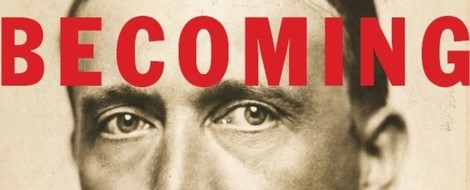Your podcast discovery platform
Curious minds select the most fascinating podcasts from around the world. Discover hand-piqd audio recommendations on your favorite topics.

piqer for: Globalization and politics Global finds Climate and Environment
Javier is a Berlin-based multimedia journalist. He completed a MA in International Journalism at City, University of London and is focused on humanitarian and conflict issues.
With experience in several countries, he's covered the refugee crisis, Turkey's coup attempt and the Kurdish conflict.
Among others, his work has been published at ABC News, Al Jazeera, Channel NewsAsia, RBB, IRIN News, El Confidencial, Público or Diario ABC.
How Hitler Became A Nazi
Yet another book on Hitler? Oh, no. Please. That's what historian Thomas Weber thought just before beginning to research and write his latest book: Becoming Hitler: The Making of a Nazi.
There are indeed too many books on the dictator and the Third Reich (anything under the label 'Nazism' sells very well), but Weber believed there were details about Hitler's past that hadn't yet been properly addressed. Crucially, the award-winning historian wanted to confront the widely spread narrative about the motivations that drove Adolf Hitler to his destructive ideology.
According to his investigation, the Nazi leader wasn't radicalized in Vienna or during the First World War. Weber instead thinks that even after he came back from the war his ideas weren't clear. Plus, he argues he was more of a pragmatic person, ready to adapt his behaviour depending on the circumstances.
The author focuses his study on the years 1918 – 1926, when Hitler lived in Munich and his worldview took form.
To reach that conclusion, Weber doesn't only travel to the Bavarian capital, but also to South Africa, Ireland and the UK, among other countries. In fact, he says it is in places like that, in places where few people have dug around in old, dusty archives looking for references to Hitler and the Nazis' early days, where you can find revealing information.
To sum up: Hitler was pretty much an opportunist who transformed himself into a radical ideologue.
Rings a bell? Then think twice.
Weber also discusses the problems of drawing parallels between the past and today's political dynamics. The past never repeats itself in the exact same way.
Of course, knowing what led us to atrocities like WWII will help us avoid new barbarities—leaving aside those already taking place.
